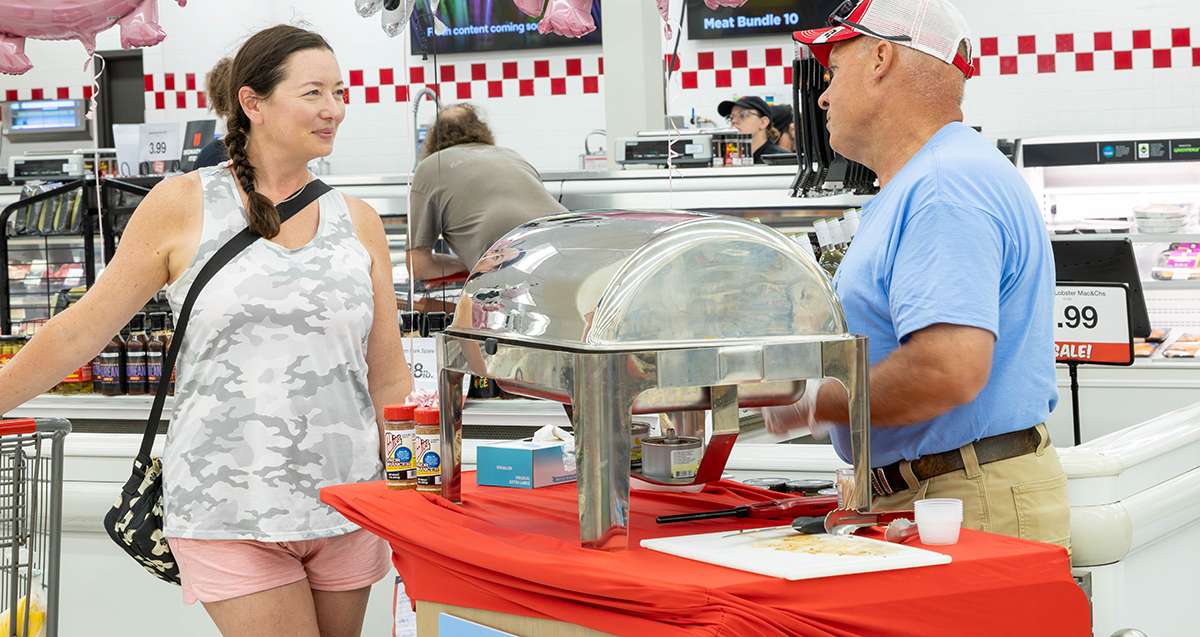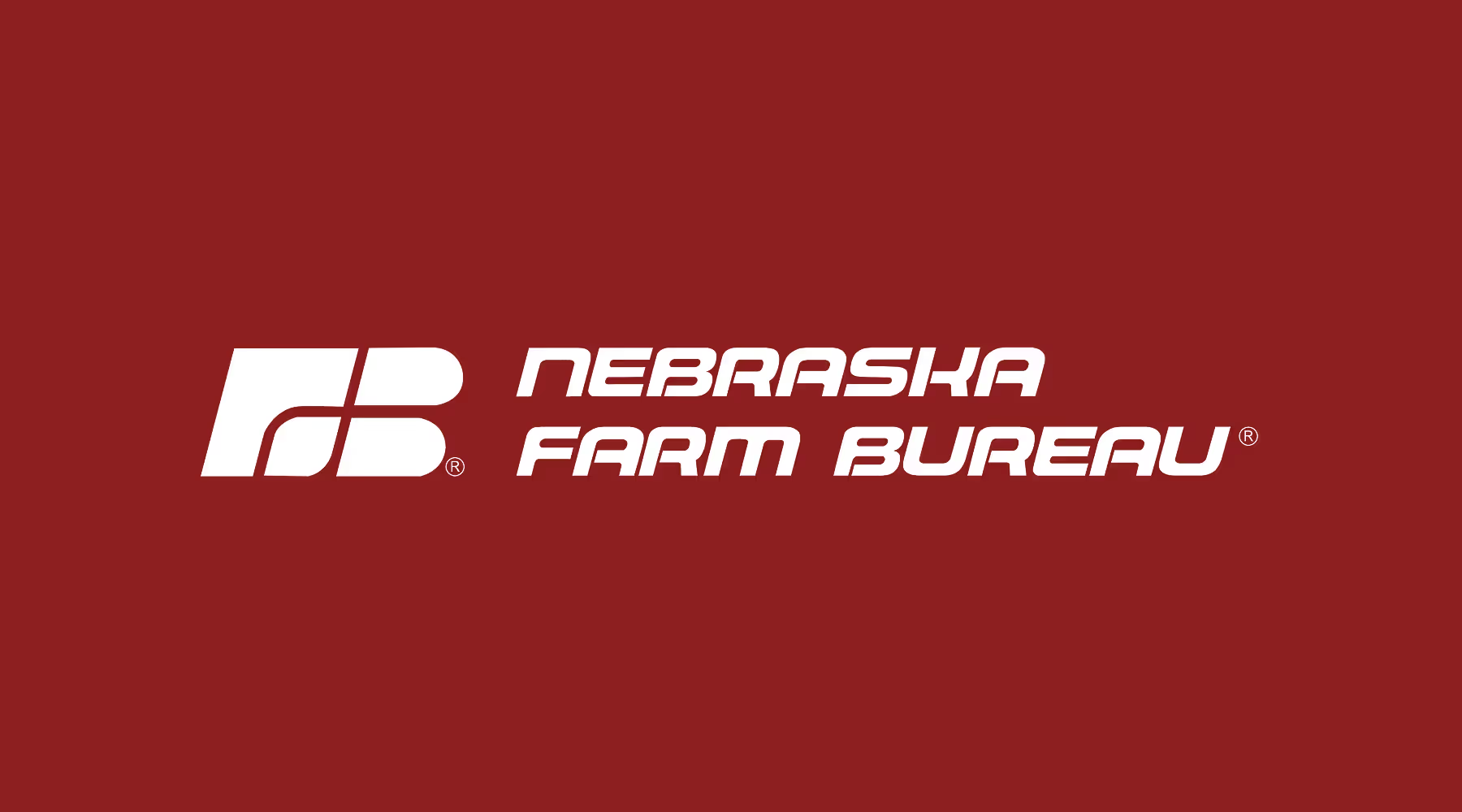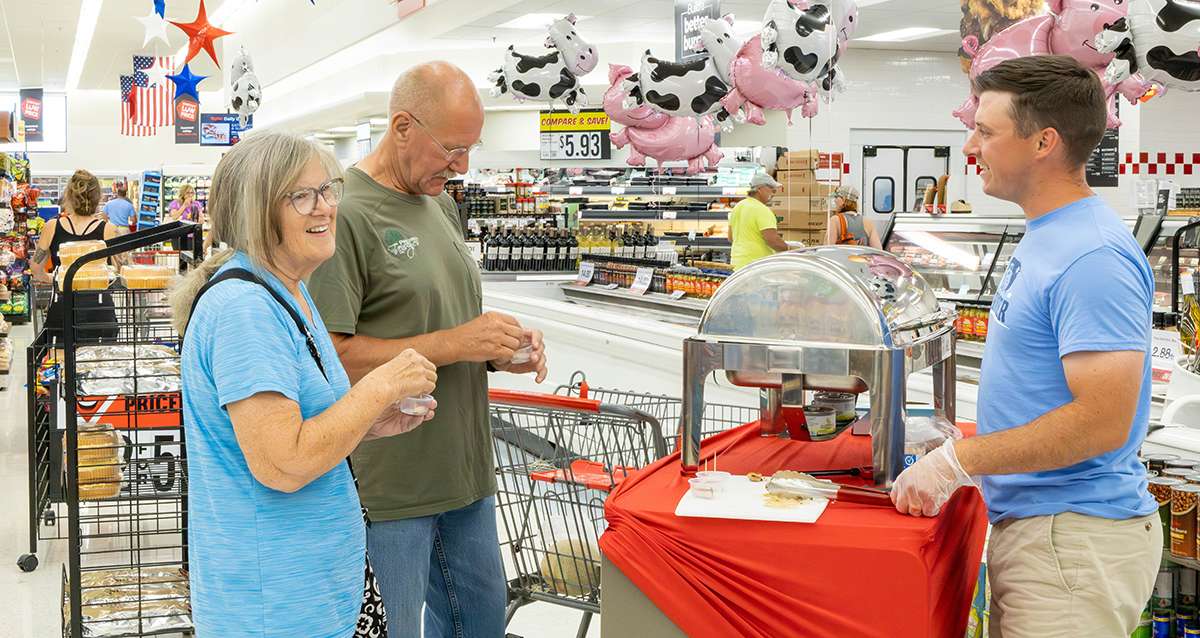Active Local Farm Bureaus, Big Impact!


Merrick County Farm Bureau members hosts Tallgrass meeting to update pipeline progress
As the Tallgrass carbon capture pipeline nears completion, Merrick County farmers are working through short-term challenges while considering the potential long-term benefits the project may offer. To give local producers a chance to learn more and share their perspectives, the Merrick County Farm Bureau recently held a meeting with representatives from Tallgrass.
“Farm Bureau is here to make sure our members are informed and have a voice in projects that affect their land and livelihoods,” said Don Benner, president of the Merrick County Farm Bureau. He noted that pipeline construction in the area is currently focused on finishing segments beneath county roads.
“They haven’t pulled the berms back yet, but representatives say they will be done by the end of August,” Benner added.

John Hladik, Tallgrass Energy representative, addresses members of Merrick County Farm Bureau during a county meeting to discuss the proposed pipeline project.
The ongoing construction of the project has already caused significant disruptions to the normal farming activities in surrounding areas.
“Farmers in the area are very fortunate to have received the consistent rainfall this growing season,” Benner noted. “Otherwise, the inability to use irrigation systems in some fields had the potential to result in major crop loss across the county.”
Complications from the pipeline project have also dipped into the book side of farming. Producers are now facing challenges signing up for government assistance programs due to the discrepancies caused by unirrigated acres. While Tallgrass is obligated to reimburse farmers for yield losses during project construction, the claims process has proved to be murky.
“It’s been confusing this year, especially when it comes to crop insurance and program eligibility for farmers,” Benner added. Despite the current frustrations, many in the agriculture community are hopeful that the worst is almost over.
“Looking at past pipeline projects, the long-term impacts on producers have been minimal. Producers in the area are hoping this will be a one-and-done year for the headaches,” Benner said regarding the local impact.
The Tallgrass pipeline is designed to capture carbon dioxide emissions from ethanol plants across the region and then convert the gas into liquid for transport to Wyoming for burial. This pipeline will position Nebraska as the only state currently earning green credits for carbon capture, a feature that has the potential to significantly boost the value and stability of local ethanol and jet fuel markets.
“This pipeline project isn’t just a local infrastructure project, it has the potential to make Nebraska ethanol more appealing globally, especially among the environmentally conscious market in places such as Europe and here at home,” Benner said.
As the finish line approaches and completion of the project becomes reality, Merrick County farmers remain cautiously optimistic that short-term sacrifices may result in long-term gains.
“I am happy that Merrick County Farm Bureau could help share important information to members and non-members alike. Farm Bureau is a grassroots organization, so when there are questions about things affecting agriculture, it’s our job to help get those questions answered and make sure our local farmers have a voice at the table,” said Benner.
‘Ask a Farmer’ event connects rural Nebraska back to urban communities
A collaborative effort between three Nebraska county Farm Bureaus recently demonstrated the power of local-level agricultural outreach. The Washington County Farm Bureau, with support from the Dodge and Douglas County Farm Bureaus, hosted a successful “Ask a Farmer” event. Additional funding from the Douglas and Buffalo County Farm Bureau grant programs helped make the event possible, highlighting how county-level partnerships and resources can significantly strengthen community engagement.
Held at the Fremont Hy-Vee, shoppers had the opportunity to stop at sample stations to visit with local producers of either beef, pork, dairy or grain; ask questions; share personal agriculture stories; and understand where their food comes from and the hard work and dedication behind the producers.
“We wanted to connect with the consumers of our products. It allowed the consumers to talk to the people growing the products they are feeding to their families,” said Patti Hoegermeyer, a Washington County member.
“It simply put a face to the product.”

Two shoppers and local producer Gage Hoegermeyer trade smiles while reminiscing about life on
their family farms.
These face-to-face conversations are crucial at a time when many Nebraskans are generations removed from agriculture.
“As consumers get farther away from the people and operations that grow their food, it’s critical to reestablish the connection between producers and consumers to build trust with each other and to grow confidence in our food system and Nebraska agriculture,” said Douglas County Farm Bureau member Brady Revels.
The event didn’t only focus on product education, but also on fun for the whole family. Outside the store, children attending the event got to enjoy agriculture-themed games and get a close-up look at modern equipment provided by Platte County Equipment.
“We had a sprayer and tractor on display during the event just to showcase how big equipment has gotten over the years” said Hoegermeyer.
For many farmers, events like this play a crucial role in clearing up widespread misconceptions about agriculture.
Revels highlighted the ongoing challenge of misinformation about the industry and the importance of cutting through the noise to share accurate, firsthand knowledge with the public.
“Consumers are overwhelmed with both information and misinformation from all directions — sensationalist media, so-called influencers and activist groups that seem determined to discredit agriculture,” Revels said.
Hoegermeyer emphasized the strict regulations in place to ensure food safety and animal welfare.
“No animals are sold with antibiotics in them. There are numerous regulations when selling all of our products – not just meat – to ensure the safety of the consumers,” she said. “Producers care deeply about the products we are selling, and we work hard to make a great product.”
Attendees’ questions often led to deeper conversations and some surprising moments.
“Most people wanted to talk about their grandparents or great-grandparents having a farm,” said Hoegermeyer. “I think the event was more about renewing people’s agriculture connections and bringing memories of farm life back to attendees.”
Revels added that some of the expected hot topics didn’t even come up in conversation.
“I was expecting to hear questions or comments regarding GMOs or hormones in the food supply, but it never came up during the event,” he said.
When asked what advice they would offer to other counties or individuals interested in organizing a similar event, both Hoegermeyer and Reveals shared practical insights and encouragement.
“Hy-Vee went above and beyond to help make this event a success,” said Hoegermeyer. “Finding a supportive host is incredibly important. The meal provided was key to starting conversations with consumers, and that wouldn’t have been possible without Hy-Vee’s partnership.”
Revels kept his advice straightforward: “Go into the event with the mindset that something is better than nothing. Try it, evaluate after, make improvements and try again.”
He also emphasized the value of collaboration.
“This event worked so well because it was a multi-county effort led by Washington County,” Revels said. “Don’t be afraid to ask other counties to help and lean on your regional managers.”
As Nebraska’s rural communities continue seeking meaningful ways to connect with urban audiences, events like “Ask a Farmer” highlight the important role local Farm Bureaus play. Through collaboration and open dialogue, county-level outreach efforts are helping build stronger relationships and trust between farmers and the public.
If your county is interested in holding this kind of event in the future, you can contact Patti Hoegermeyer at hoegfam@midlands.net.

